Wednesday, August 31, 2005
My Letter to the President
(Cross-posted everywhere)
Dear Mr. President,
Like most Americans, I am watching the horror unfold in the aftermath of Hurricane Katrina. Also like many Americans, I have felt a deep and strong pull to respond in any small way that I can. For me, it has been through fundraising and through getting the word out as to how people, good American people, can respond and lend even a small hand in helping deal with such a great tragedy.
The tragedy itself, though, says a great deal not only about the generous spirit of Americans but about you on two critical levels. The first would be on a leadership level, and the second would be on a human level.
They say that the measure of a great leader is gauged not by how he handles the 90% of events that are anticipated and expected, but by how he responds to the 10% that is utterly unforeseeable. Hurricane Katrina would fall into that rare, unforeseeable category and your actions before, during and now after this event are very telling of your leadership.
The devastation that continues to unfold and worsen in the hurricane's aftermath put me in mind of other disasters, man-made and otherwise. Most specifically, the specter of 9/11 came before me very clearly. The relief that poured in to New York City and Northern Virginia following that tragic day were unprecedented. Events seemed to overwhelm reality and relief was poured into the areas affected. People knew where they could go for help. The infrastructure was in place to accommodate even the unforeseen. Frankly, I consider it nothing short of a miracle that things worked the way they did on 9/11. We were very lucky in that regard.
The relief coordination around Katrina has been abysmal. People don't know where to go. They don't know what to do. They have no information. No one can seem to agree on how to handle staunching the flow of water into New Orleans. The military is scrambling to assemble its assets effectively to provide the most basic of medical and sustenance needs. Don't mistake my tone - I have the greatest respect for the individuals who are risking their lives and safety to save the lives and secure the well being of survivors - but they are fighting an uphill battle because the coordination is simply criminal. The lives that will be saved in the coming days will be saved through the sheer power of human compassion carried by the individuals on the scene. The lives that could have been saved yet will be lost will be the price of terrible coordination. I lay that responsibility squarely at your feet.
Let me extrapolate somewhat and tell you that Katrina could have been any domestic disaster. The levees of New Orleans could have been compromised by a terrorist attack. A coordinated terrorist attack could have gone off in the Gulf region yielding devastation on par with what Katrina wrought. Refineries and chemical plants in the region could have been attacked through terrorist methods. The list of possibilities is endless.
So I ask you - how is it that, in post-9/11 America, we are failing so completely to render aid and comfort? How is it that today, this last day of August 2005, nearly four years after 9/11, we have no cohesive plan to deal with the region's refugees, the potentially one million American citizens without work or a home or basic care? That speaks directly to your leadership, sir, and it doesn't speak well for it at all.
The decisions that you have made in your capacity as President and leader of the United States of America have real human costs and implications. The decision to go to war in Iraq has directly affected the response to this disaster in overt and subtle ways. The deployment of Guardsmen in Iraq has left the affected states with fewer resources at a time when they need them the most. The decision to go to war in Iraq and the lack of planning to deal with the aftermath of the war has directly affected the stability of oil prices, which in turn affects every American. A disaster such as Katrina further strains a system that, through bad policy, is already too volatile to accommodate additional trauma. The decision to institute tax cuts at a time when we, as a Nation, should be planning for the worst-case scenarios of unexpected events has left cities and states and regions without the resources they need to effectively plan for and respond to disasters of any variety.
A certain component of the disaster caused by Hurricane Katrina was unavoidable. But there is also a component that better leadership and some degree of forward-thinking would have prevented. Those deaths and tragedies should be laid at the foot of your short-sightedness and bad leadership. You should have to look at it. Perhaps it will be a reminder and you will act to prevent such things in the future.
I told you that I thought that this disaster said something about you on two levels and the second one is on a personal level. Your voice has been remarkably absent as the horror in the Gulf region has unfolded. Press clippings have shown you going about your planned events. You have given lip service to the devastation at certain points, but your actions speak louder than any words you can utter. A human response to this would have been to curtail matters of personal policy (stumping for support for the war in Iraq; the ghastly comparison of World War II with the war in Iraq; your baffling decision to do a photo opportunity with the Presidential guitar) and show an appropriate amount of respect for the lives being lost even as you plucked the strings.
Average Americans like me - who work for a living every day in this country - who don't have the luxury of a month-long vacation - took what little free time and disposable income we have and sprung into action. We raised money. We spread the word. We assembled information on what was needed and by whom and the best way to get it there. We felt - we watched our televisions and we cried at the tragedy we saw before us. Our response was so quintessentially human that your lack of it makes me wonder if we belong to the same human race.
So I'll leave you with this. A word image. You're in the dark, Mr. President. You can feel something pressing against the crown of your head - it's the roof of your attic. You're in water up to your neck. The water is filthy - you're surrounded by it - it's stiflingly hot in the little airspace you occupy. You're hungry and have nothing to eat. You're thirsty, dangerously dehydrated but you can't drink the very thing which may claim your life. Below you is everything you had. All your possessions - underwater. You don't know where your wife and children are and if they survived. You pray, Mr. President. Every time you hear what sounds like a boat or a helicopter you pray that someone will sense that you are under that roof needing help. You're too weak and too constrained by the space you occupy to signal for help. You have to wait, and as you wait, the water rises. If you're lucky, someone will find you. If you aren't, you'll die that slow, horrifying and frightening death. Alone.
Feel like playing us a tune now?
Respectfully,
RenaRF
[editor's note, by RenaRF] Postscript: SusanHu rightfully points out that I should link to yesterday's Disaster Relief Diary, which raised about $8,500 for relief from this community alone.
You've Come This Far - So Read more & Comment!
posted by RenaRF at 10:18 AM


Tuesday, August 30, 2005
Action Needed - Relief for Hurricane Victims
I knew that this would be the direction of my posts in the aftermath of Hurricane Katrina. I think it's a wonderful thing that new Orleans was spared a "worst case scenario" hit by Katrina. Unfortunately, I think that worst-case predictions and subsequent "dodged the bullet" reports are taking away from the magnitude of devastation across the three states most impacted by Katrina. Moreover, the storm is still out there dropping prolific amounts of rain on other states. Relief is needed for Gulf Coast victims and it's needed now. What follows are the organizations that will be actively working to give relief to Katrina's victims.
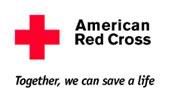
The American Red Cross
Donation Link: Click here and select 'Donate Now'.
Relief focus: The Red Cross provides a full spectrum of services to disaster victims. From assistance with shelter, medical care, food, clean water and cleanup efforts, the Red Cross is an organization poised to assist in circumstances such as this.

Feed The Children
Donation Link: Click here and follow the donation link.
Relief focus: Feed the Children has long been competent at mobilizing and distributing supplies to disaster victims and victims of famine and disease. They are currently mobilizing a massive relief effort by gathering needed supplies and getting them to hurricane devastated areas.

The Salvation Army
Donation Link: Click here and follow the donate on line link.
Relief focus: The Salvation Army is prepared to provide 400,000 hot meals a day to displaced disaster victims and emergency personnel working to aid those devastated by Hurricane Katrina. They also provide a means for individuals to physically volunteer their time and assistance in the relief efforts.

United Jewish Communities
Donation Link: Click here and choose upper-right Katrina relief links.
Relief focus: Community organized and administered humanitarian relief for disaster victims.

Catholic Charities USA
Donation Link: Click here and follow instructions to donate online, by mail, or by phone.
Relief focus: Community based relief efforts focused on the long-terms needs of disaster victims and affected communities.

United Methodist Committee on Relief
Donation Link: Click here and follow the 'Donate Now' link.
Relief focus: Although they provide general community-based disaster relief, they are also focusing on the creation and distribution of "flood buckets", a more hands-on relief item for those who prefer to donate with a personal touch.

Noah's Wish
Donation Link: Click here and scroll to the bottom of the page.
Relief focus: Noah's Wish is a not-for-profit, animal welfare organization, with a straightforward mission. We exist to keep animals alive during disasters. That's it.

Humane Society of the United States
Donation Link: Click here.
Relief focus: Dispatching Disaster Animal Response Teams (DARTs) to rescue animals and assist their caregivers.
ASPCA
Donation Link: Click here and choose the type of giving you prefer.
Relief focus: Although they do not yet have anything specific to Katrina up on their site, the ASPCA sends emergency relief to animal shelters when natural disasters occur.

North Shore Animal League America
Donation link: Click here and select 'Donate'.
Relief focus: NSAL America has an emergency response team that is ready to respond in the event of an emergency. In 2004, we responded to the devastating hurricanes in the south.

United Way
Donation Link: Click here and follow Katrina donation links.
Relief focus: United Way is leading response and recovery efforts by working hard to identify the most serious needs of devastated communities and is committed to helping not only with front-line disaster relief but with long-term recovery—those needs that are often not addressed in the days, weeks and months following a disaster.

America's Second Harvest
Donation link: Click here.
Relief focus: They expect at least ten food banks and hundreds of related agencies will be hit by hurricane 'Katrina'. Their Network is in great need of funds to transport food to victims and secure additional warehouse space to assist our Member food banks in resuming and maintaining operations.

Direct Relief International
Donation link: Click here and select 'Support Us'.
Relief focus: Because of the organization’s extensive medical inventories, Direct Relief serves as a private back-up support to official emergency response efforts in the United States.

Habitat for Humanity
Donation link: Click here and follow the Katrina link.
Relief focus: Helping disaster victims rebuild piece by piece and house by house.
The Better Business Bureau's Give.org site can help you decide which charity if you are torn. They have reports available on major charitable organizations and, in some cases, detailed information on a charity's organization and administration.
Now is definitely the time to reach out and help these victims. This is not a political issue, as many commenters to this blog have reinforced. I hope you find this a useful resource.
You've Come This Far - So Read more & Comment!
posted by RenaRF at 8:56 AM


Monday, August 29, 2005
Katrina Still Active - Sorting the Aftermath
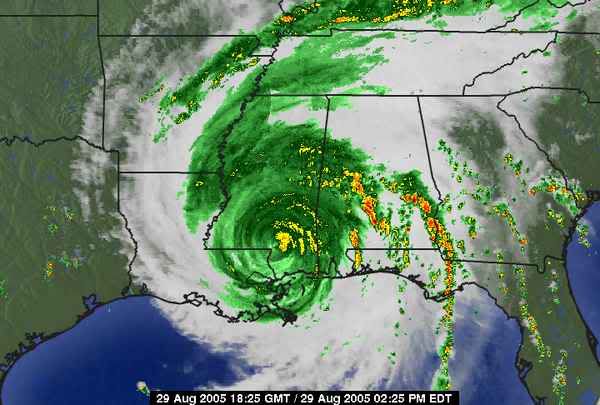
I suppose an exhale of relief is called for where Katrina is concerned. Yet somehow I don't know if that's appropriate - the devastation that seems to have
narrowly missed New Orleans did NOT narrowly miss Gulfport, Mobile, and other parts of the Louisiana/Alabama/Mississippi shoreline. Moreover, the hurricane is still a hurricane as it tracks inland and northward into areas much more poorly equipped to deal with hurricane damage. In the recent past, hurricanes like Ivan hit as a category three and quickly lost power and punch before moving out over land - not true with this one. It hit with such force and power that it's still a hurricane even though the eye is well over land.
Photographs of damage a

re now starting to come in. I have a few from the AP that show pictures from New Orleans. While the eastward "wobble' that nudged Katrina away from catastrophic damage to New Orleans, the damage is still extensive. Buildings, businesses, homes and livelihoods have been severely disrupted if not destroyed. Bear in mind also that, demographically speaking, the areas hit by this storm are typically poorer areas.
Another casualty of this particular hurricane is the US oil market. The Gulf shore is responsible for 20-30% of domestic oil supply and refining. CNN is reporting that two production facilities tore loose during the hurricane, and that a facility responsible for handling oil from other countries w as shut down on Saturday. Estimates are that supply could be affected by as much as 10%, which caused oil prices to surge over $70 a barrel this morning. There is still question as to whether or not the President will ease the rapidly increasing prices experienced by consumers by announcing his intent to augment supply from the US strategic oil reserves. Let's hope someone does something soon - the average middle-class American is already in a position where they are choosing between necessities such as gas, food, and healthcare. It's a crisis that can't be avoided, but it's blow can be blunted through sound policy.
as shut down on Saturday. Estimates are that supply could be affected by as much as 10%, which caused oil prices to surge over $70 a barrel this morning. There is still question as to whether or not the President will ease the rapidly increasing prices experienced by consumers by announcing his intent to augment supply from the US strategic oil reserves. Let's hope someone does something soon - the average middle-class American is already in a position where they are choosing between necessities such as gas, food, and healthcare. It's a crisis that can't be avoided, but it's blow can be blunted through sound policy.
The best charity, it seems, to handle disaster relief is the Red Cross. You can find a link to their donation page here. You can choose whatever amount you donate to go to disaster relief. I will keep this updated as well with any local-needs and calls-for-goods types of requests.
You've Come This Far - So Read more & Comment!
posted by RenaRF at 1:45 PM


Hurricane Katrina Comes Ashore
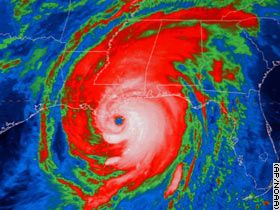
One area's good news is another's tragic news. The overall good news: Hurricane Katrina weakened
slightly overnight and levelled out as a strong category 4 hurricane.
As I type this, the worst of the storm is hitting New Orleans, Louisiana. The storm "wobbled" before making landfall, however, and struck slightly
east of New Orleans. That's excellent news for the Crescent City and devastating news for areas such as Gulfport and Biloxi, Mississippi. The most intense portion of a hurricane is in the eyewall of the storm. If you drew a cross through the eye of the storm and beyond with the cross intersection at the center of the eye, the upper-right quadrant created by the cross woud be THE most intense and damaging. The eastward jog took the worst of the storm surge and winds away from New Orleans, which may yet be spared devastation.
Our attention now shifts to Missippi and other smaller towns impacted by that upper-right quadrant of intensity. I'll edit this as updates come in.
Update: the roof of the Superdome, which is currently sheltering about 10,000 New Orleans area residents and visitors, has experienced some damage and some sections have blown away, causing water to enter the dome itself. So far reports say everyone is safe, however.
10:15am EST update: Reports are coming in that the Mississippi River levee in the French Quarter of New Orleans has been compromised. Areas in and around New Orleans are flooding. Distress calls are coming in from individuals who are trapped in rising floodwaters, though these reports remain unconfirmed. When a mandatory evacuation is ordered, citizens who choose to remain behind in their homes are not guaranteed emergency response. Emergenchy personnel will not additionally be placed at adverse risk and therefore many of these people are on their own.
You've Come This Far - So Read more & Comment!
posted by RenaRF at 8:22 AM


Sunday, August 28, 2005
Oh my God.
I realize I may seem to have hurricanes on the brain, but I can't tell you how frightened I am for the people in the path of Katrina. I told my husband that what's so disturbing is just knowing that people will die because of this storm.
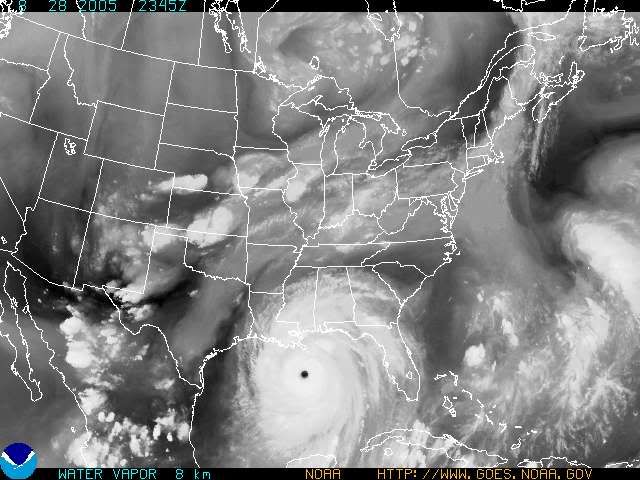 It's a huge storm and appears to be ready to strike under nightmare circumstances - in other words, apparently there IS a worst-case track for a hurricane as it relates to New Orleans and this one is on it. If you like, blogroll me or bookmark the site and I will provide updates, most specifically as related to relief efforts and places where donations will be needed.
It's a huge storm and appears to be ready to strike under nightmare circumstances - in other words, apparently there IS a worst-case track for a hurricane as it relates to New Orleans and this one is on it. If you like, blogroll me or bookmark the site and I will provide updates, most specifically as related to relief efforts and places where donations will be needed.
You've Come This Far - So Read more & Comment!
posted by RenaRF at 7:49 PM


Killer Hurricane
 I don't really think there are many people left with access to information who do not know that a major, potentially catastrophic hurricane is heading towards the Gulf coast of the US, and specifically seems to be taking aim at New Orleans. The potential for devastation from this storm is huge. It was characterized by one news commentator as a 500 to 1 odds storm, meaning that its size, intensity, and track are extremely rare and line up almost perfectly with the most feared hurricane scenario the US has ever contemplated.
I don't really think there are many people left with access to information who do not know that a major, potentially catastrophic hurricane is heading towards the Gulf coast of the US, and specifically seems to be taking aim at New Orleans. The potential for devastation from this storm is huge. It was characterized by one news commentator as a 500 to 1 odds storm, meaning that its size, intensity, and track are extremely rare and line up almost perfectly with the most feared hurricane scenario the US has ever contemplated.
New Orleans is a special city to and for me. My husband and I have spent some of our best times there. It's a place for music and culture lovers to wander and soak up the surroundings. My husband is a non-drinker - yet there's plenty to see, endless combinations of side-alleys to dip down, and countless small corners of culture and personality to explore. I am frankly upset thinking about the possibility that that could be washed away.
I am a daily participant over at Daily Kos. When I woke up this morning and checked the blog I saw that its prominent front page story w as an open thread about the hurricane. It consisted of news and information, updated as necessary to the front page. It has, from what I understand, been a great resource for those who are having trouble (due to high site traffic) getting information from any of the "major" news services online. More than that, though, there is a link to a thread about Daily Kos users offering shelter to other users. Users in Memphis... St. Petersburg... Houston... etc. and so forth are opening up their homes and offering it to other users who need to evacuate and have nowhere to go. THAT is the essence of the community to which I belong. This isn't the first time I've seen Daily Kos bloggers willing to help other bloggers - there are a host of examples of Kossacks (our name for dKos users) helping other Kossacks simple because help is needed. It's a good feeling and what "community" really embodies. It also illustrates what I consider one of my key values - that communities reach out and care for and about community members. I'm honored to be associated with it.
as an open thread about the hurricane. It consisted of news and information, updated as necessary to the front page. It has, from what I understand, been a great resource for those who are having trouble (due to high site traffic) getting information from any of the "major" news services online. More than that, though, there is a link to a thread about Daily Kos users offering shelter to other users. Users in Memphis... St. Petersburg... Houston... etc. and so forth are opening up their homes and offering it to other users who need to evacuate and have nowhere to go. THAT is the essence of the community to which I belong. This isn't the first time I've seen Daily Kos bloggers willing to help other bloggers - there are a host of examples of Kossacks (our name for dKos users) helping other Kossacks simple because help is needed. It's a good feeling and what "community" really embodies. It also illustrates what I consider one of my key values - that communities reach out and care for and about community members. I'm honored to be associated with it.
I'm too far from New Orleans to offer much help in terms of space but I can help by buying someone a room for the night and I have offered to do so if needed. If you're interested, please see the following links:
You've Come This Far - So Read more & Comment!
posted by RenaRF at 2:50 PM


Saturday, August 27, 2005
Cindy Sheehan
I mentioned in one of my first posts to this blog that I had gone to a candlelight vigil in solidarity for Cindy Sheehan. I can't put my finger on exactly
why I went - I guess I just felt compelled.
The truth is, however, that while I support Cindy Sheehan and the message that I think she brings fo

rward, I don't necessarily embrace what she publicly states as what she wants. Sheehan has essentially and unequivocally said that she wants us to get our troops out of Iraq. Now. Frankly, I can't think of a more morally reprehensible thing for us to do. Don't get me wrong - I was against this war from the beginning. I thought the case for war was weak at best, and abetted by a lackadaisical and intimidated press corps too afraid of questioning "the war President". In life, however, some things that are done can't be easily undone and I think that that principle holds true with our involvement in Iraq. We
have broken it and we bear responsibility for returning to the Iraqi people a land not so utterly devastated as that which we have created.
I am certainly not a Saddam apologist. He was and is a bad and evil man capable of inhuman acts for the sake of power. But I find it nauseating to realize that, at this point, we have to step back and ask ourselves if the Iraqi people were better off with the cruelty of Saddam vs. the uncertainty and continual violence under which they now live, post-Saddam. Think about that - we have to legitimately wonder if we have made it worse for these people. As I write this, the interim Iraqi government is deadlocked on the negotiations of some key issues for its Constitution. Chief amoung these will be the role of Islam which, among other things, can and will have a deep impact on the rights of women in Iraq. Iraq was a lot of things under Saddam Hussein and one of those things was one of the most progressive middle eastern nations when it came to women's rights. We may have actually managed to reverse that in our current involvement.
But I digress. The original point of the post was and is Cindy Sheehan. She's been all over the press coverage here for the last three we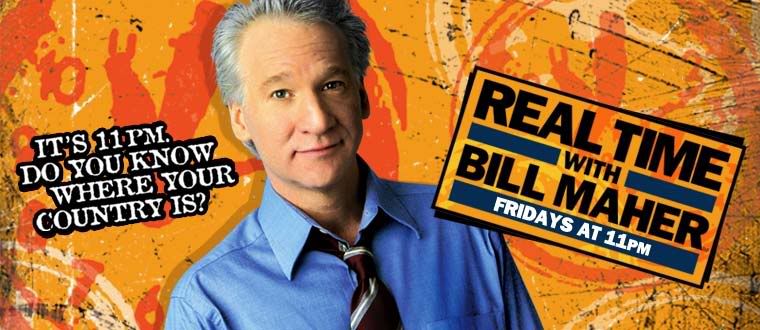 eks. Last night my husband I sat down to watch Bill Maher and she was the first interview. My husband, a pretty progressive guy (though not as politically indoctrinated as I) expressed a fair amount of distaste for Cindy. She really kind of rubs him the wrong way. He's certainly entitled to his opinion and he asked me mine regarding her. I told him that while I don't agree with her overall message (withdraw now) I am ecstatic about the attention that she brings to the issues of this war and the reminders she provides as to why and how we got into it vs. what we were told. Ultimately, I told him that, thirty years from now, her face and name will be synonymous with the post-9/11 anti-war movement. I think whether or not that is a good thing is a story that has yet to be written.
eks. Last night my husband I sat down to watch Bill Maher and she was the first interview. My husband, a pretty progressive guy (though not as politically indoctrinated as I) expressed a fair amount of distaste for Cindy. She really kind of rubs him the wrong way. He's certainly entitled to his opinion and he asked me mine regarding her. I told him that while I don't agree with her overall message (withdraw now) I am ecstatic about the attention that she brings to the issues of this war and the reminders she provides as to why and how we got into it vs. what we were told. Ultimately, I told him that, thirty years from now, her face and name will be synonymous with the post-9/11 anti-war movement. I think whether or not that is a good thing is a story that has yet to be written.
I believe also that Cindy Sheehan is an uncommonly strong and compelling voice in a sea of voices about the war in Iraq. She certainly hasn't been embraced by the Democratic establishment - you don't see prominent Democratic leaders heading to Crawford to stand with her nor did you see any of them rushing to Crawford to fill in for her, to "carry the torch" as it were, when her mother had a stroke. The silence from the Democratic leadership is deafening and I don't understand it at all. In a political climate that, generally, fails to sharply distinguish between candidates and their parties, this is one where Democrats can and should stand up and support Cindy Sheehan's message.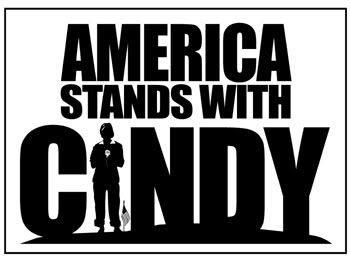
posted by RenaRF at 2:51 PM


Thursday, August 25, 2005
Entertainment With A Conscience
I realize that the title of this post is highly subjective. After all - who determines the "conscience" of a piece of music, art, or film? Well, this is MY blog - So I do. ;-)The Girl in the Cafe is a wonderful, touching and somewhat melancholy love story with a conscience. A joint production of HBO films and the BBC, it features Bill Nighy as Lawrence, a key fina
the "conscience" of a piece of music, art, or film? Well, this is MY blog - So I do. ;-)The Girl in the Cafe is a wonderful, touching and somewhat melancholy love story with a conscience. A joint production of HBO films and the BBC, it features Bill Nighy as Lawrence, a key fina ncial adviser to a senior minister in the British government. Nighy is an unlikely romantic leading-man but the quintessentially perfect numbers cruncher with a quiet (sometimes too quiet) conscience and big heart. The girl herself, Gina, is played by Kelly Macdonald. A lonely yet surprisingly open young woman with a dark past, Gina is the vocal conscience to Lawrence's more understated and compromising nature. What develops between them is a soft, subtle, awkward and totally believable love.
ncial adviser to a senior minister in the British government. Nighy is an unlikely romantic leading-man but the quintessentially perfect numbers cruncher with a quiet (sometimes too quiet) conscience and big heart. The girl herself, Gina, is played by Kelly Macdonald. A lonely yet surprisingly open young woman with a dark past, Gina is the vocal conscience to Lawrence's more understated and compromising nature. What develops between them is a soft, subtle, awkward and totally believable love.
The conscience and heart of this movie is the setting for the majority of it. Although they meet in London, Lawrence invites Gina to go on a trip with him - to Iceland - to the G8 Summit. As a key advisor to the finance minister, his role in the G8 is key. As their trip progresses, she asks him what, specifically, he's working on. He explains the Millennium Development Goals to her, an initiative previously agreed to by the G8. The purpose of the goals is to cut in half extreme global poverty (the kind of poverty that kills people) by the year 2015. He explains to her that 30,000 children each day die from abject poverty. That's one every three seconds. What was, for me, one of the most memorable lines was this:
- to the G8 Summit. As a key advisor to the finance minister, his role in the G8 is key. As their trip progresses, she asks him what, specifically, he's working on. He explains the Millennium Development Goals to her, an initiative previously agreed to by the G8. The purpose of the goals is to cut in half extreme global poverty (the kind of poverty that kills people) by the year 2015. He explains to her that 30,000 children each day die from abject poverty. That's one every three seconds. What was, for me, one of the most memorable lines was this:
"Eight men in one room could, literally, save hundreds of millions of lives."
Eight men. The same eight men, those leaders, that Group of 8, that meets every year. The movie continues with some excellent but not taxing scenes of the meeting of the Finance Ministers and the slow slide of the Millennium Development Goals down the agenda. There is much posturing around a need for compromise on those goals. The only additional part I'll highlight comes from an exchange between Gina and the UK Finance Minister where Gina has expressed an opinion about not letting these goals get pushed down the agenda:
UK Finance Minister: "It's a very complex issue, Gina. Lawrence and I have often found in the course of our work that a little knowledge can be a dangerous thing."
Gina: "I know. But then my dad, who maybe wasn't as educated as you two [referring to the finance ministers for the UK and Germany] used to say that a lot of knowledge can be dangerous, too. Stopped you seeing the heart of things."
Indeed. What could be more worthwhile or have a higher priority than keeping people, specifically children, from dying of hunger? Or from becoming so weak that they die from a mosquito bite? In this world where we drive our SUVs and live in relative excess, it seems a small thing. Is there some rationale or explanation that anyone can provide to tell me why each one of us shouldn't care about these issues? Is there any reason that each one of us can't give something to help alleviate these issues? A vote is something you can give. It doesn't have to be money. It has to be something meaningful - something that you take the time to learn about and then dedicate your heart and mind to - to talking about it - to tirelessly campaigning for it - to letting it get to you and reduce you to tears. Meaningful.
 Even ordering and wearing the white wrist band lets people know that you want to eliminate world hunger and poverty. Visit The ONE Campaign's website. In association with Make Poverty History and other awareness and aid-giving groups, the ONE campaign is endeavoring to do no more than to compel the world's industrial leaders to stand by their promises. If we can't stand by our word, what, ultimately, do we have to offer of any value??
Even ordering and wearing the white wrist band lets people know that you want to eliminate world hunger and poverty. Visit The ONE Campaign's website. In association with Make Poverty History and other awareness and aid-giving groups, the ONE campaign is endeavoring to do no more than to compel the world's industrial leaders to stand by their promises. If we can't stand by our word, what, ultimately, do we have to offer of any value??
You've Come This Far - So Read more & Comment!
posted by RenaRF at 6:01 PM


Recommended Progressive Reading
I have a quick entry to suggest progressive titles to everyone out there. Each of the graphics is hyperlinked to the Amazon.com entry for the book itself. I highly recommend each of these, in no particular order, but would consider the first one, the Lakoff book, absolutely required reading. If you've read something progressive-oriented that I have missed, by all means - please include it in the comments.
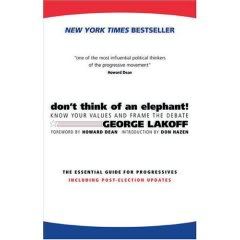
Don't Think of an Elephant!
George Lakoff

What's the Matter with Kansas?
Thomas Frank

God's Politics : Why the Right Gets It Wrong and the Left Doesn't Get It
Jim Wallis
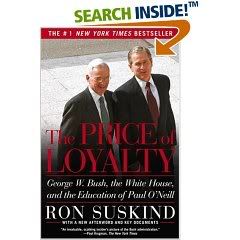
The Price of Loyalty
Ron Suskind
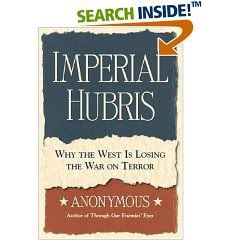
Imperial Hubris
*Anonymous*

Against All Enemies
Richard Clarke
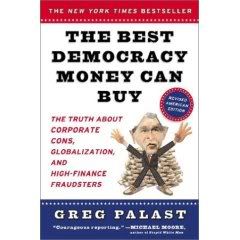
The Best Democracy Money Can Buy
Greg Pallast
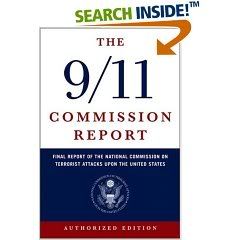
The 9/11 Commission Report
The 9/11 Commission
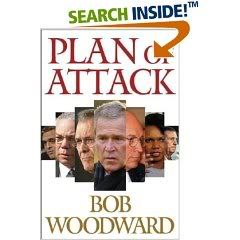
Plan of Attack
Bob Woodward
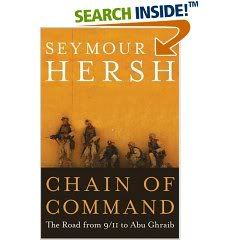
Chain of Command
Seymour Hersh
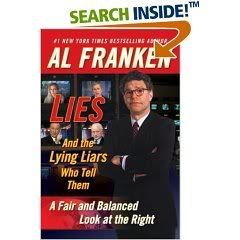
Lies and the Lying Liars Who Tell Them
Al Franken
posted by RenaRF at 11:33 AM


Wednesday, August 24, 2005
Choosing a Progressive Metaphor
Speaking in examples is a skill. It's an imperative skill if you are in the business of persuading people. No matter what your personal politics are, the best leaders have always spoken in metaphors and ones where the people listening could instantly place themselves
within that metaphor. Martin Luther King Jr. had the mountaintop and he took his followers there with him... Ronald Reagan reassured us that it was morning in America and we slept comforted. Bill Clinton was a boy from Hope, an everyman small town boy and we somehow knew him better.
Metaphors are the stuff of American folklore. They don't even necessarily have to be true or especially connected to reality, though I would surely prefer veracity. I think progressives lack metaphors and that hurts us when it comes time for elections.
One of the most influential books I've read in recent memory is G George lookup's Don't Think of an Elephant. Lakoff hooked me from the beginning by asking a question: Why, said he, in Bush's State of the Union Speech in 2003, did Bush use the phrase "permission slip" when referring to the U.N. and traditional allies?? He could have said "we don't need to ask permission". It would have been fundamentally saying the same thing. But he didn't say that and it was very deliberate - he said "we don't need a permission slip" to go war. When you think of a permission slip, if you're like me, you think of being back in elementary and middle school, where your every move and moment was controlled by an adult's, sometimes seemingly without reason. By using "permission slip", Bush immediately invoked in the listener's mind, conceptually, the idea that asking permission was a bad, unnecessary thing. He set us up and did so quite brilliantly.
George lookup's Don't Think of an Elephant. Lakoff hooked me from the beginning by asking a question: Why, said he, in Bush's State of the Union Speech in 2003, did Bush use the phrase "permission slip" when referring to the U.N. and traditional allies?? He could have said "we don't need to ask permission". It would have been fundamentally saying the same thing. But he didn't say that and it was very deliberate - he said "we don't need a permission slip" to go war. When you think of a permission slip, if you're like me, you think of being back in elementary and middle school, where your every move and moment was controlled by an adult's, sometimes seemingly without reason. By using "permission slip", Bush immediately invoked in the listener's mind, conceptually, the idea that asking permission was a bad, unnecessary thing. He set us up and did so quite brilliantly.
Lakoff gives a bunch of examples - "tax relief". When someone grants you relief, they are helping you. If you need to be relieved from something, the something in question is, by implication, a burden. Tax relief removes the burden of taxes. "Partial birth abortion" is another. It is so inherently negative and invokes the idea that you are partly bearing a child only to abort it and end its life.
These are all "frames". Effective framing gives you a conceptual feeling for the issue or item in question. Effective framing allows people to win points and issues and elections through a careful choice of language. Republicans and especially the Bush Administration do this very well.
As a progressive, I believe strongly that we need frames of our own, frames that broad  ly define either our good concepts or highlight their bad concepts. Frames need to be chosen and, ideally, metaphors need to be built around them. It's a long-term and continually renewing process requiring vision, discipline and diligence. I don't see how we win without it.
ly define either our good concepts or highlight their bad concepts. Frames need to be chosen and, ideally, metaphors need to be built around them. It's a long-term and continually renewing process requiring vision, discipline and diligence. I don't see how we win without it.
People tried it on their own in the 2004 election. The button to the right was an actual campaign slogan and tagline put out by very progressive groups. But it wasn't put out by the Democratic National Committee or by the Kerry/Edwards campaign.
It should have been.
It's an EXCELLENT frame and metaphor. It tells you what you need to know in five words. The two words that people walk away with are "lied" and "died". It allows for connection to other frames as well - abuse of power. Executive arrogance. Flagrant disregard. It is so easy, give years into the Bush Administration, to cherry-pick the frames that help neutralize their effectiveness.
But what frames highlight our strengths? Abuse of power and lying and incompetence let us define their negatives. But we don't want to run an entire election shaped around their deficits - it leaves us too out of control if one or more of the negatives we choose to emphasize (remember - frames take time and commitment) suddenly turn around or even start to look like they might turn around, we're in deep poo. So we can and should build our frames on positive messages.
Think of Bill Clinton's frame-worthy re-election song, Don't Stop Thinking About Tomorrow. I've already mentioned Reagan's "Morning in America". So in a country where health care becomes more expensive and often out-of-reach for average Americans; in a country where good middle-class jobs are disappearing; in a country with out-of-control gas prices and middle-class choices between food, the doctor, and the gas tank, our frame and its related metaphor(s) have got to be hopeful, highlighting a salvation from the desolate and desperate shape in which most Americans find themselves.
And, if I had all those answers at my fingertips, I'd have a different career. ;-) If you have ideas, please - SHARE - I need whatever ideas I can get.
posted by RenaRF at 7:48 PM


Topical News Items
People learn a lot about me by seeing what news attracts and holds my attention. I consume my news from a host of different sources. In the so-called mainstream, I turn to CNN and MSNBC for televised news and read The Washington Post and The New York Times for print news. I also subscribe to Sirius satellite radio and listen to BBC and C-SPAN. I'd say the greatest diversity of news I consume comes online, however. I visit a host of blogs, the most prominent being Daily Kos. I also read international news sources like online newspapers from Mexico and online English-language editions of Al-Jazeera. We exist in a vacuum if we care only what we are saying about what we're doing - it should and does matter what others are saying about it as well. It flabbergasts me that we don't turn more readily to international news sources - for no other reason that it at least provides some perspective.
The Cindy Sheehan story has really captured my imagination over t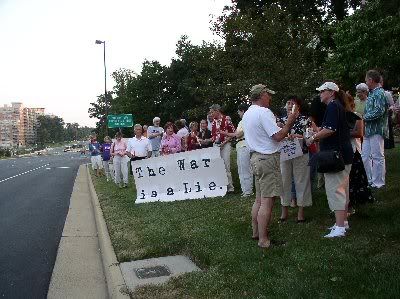 he past few weeks. I'd like to make clear that I disagree with her ultimate message - that we should withdraw troops from Iraq now - but I love the fact that she has a message. Every time she makes it into the news coverage she raises the spectre of the things that were asserted and presented as fact in getting us into the War in Iraq. With her on the news virtually every day, we can't forget that we were told one thing in going to war and wound up having those things be proved completely false. I'm sure it's not just me, but I've noticed a substantially harshening tone in the Administration's rhetoric towards Iran of late - recall that Iran is a member of the "Axis of Evil" - it will do us good to remember that we have to question and questions and exercise extreme circumspection when it comes to the life and death issues of going to war. Cindy Sheehan brings that message home every time she makes a news cycle, and that's why I attented a vigil in solidarity, pictured above.
he past few weeks. I'd like to make clear that I disagree with her ultimate message - that we should withdraw troops from Iraq now - but I love the fact that she has a message. Every time she makes it into the news coverage she raises the spectre of the things that were asserted and presented as fact in getting us into the War in Iraq. With her on the news virtually every day, we can't forget that we were told one thing in going to war and wound up having those things be proved completely false. I'm sure it's not just me, but I've noticed a substantially harshening tone in the Administration's rhetoric towards Iran of late - recall that Iran is a member of the "Axis of Evil" - it will do us good to remember that we have to question and questions and exercise extreme circumspection when it comes to the life and death issues of going to war. Cindy Sheehan brings that message home every time she makes a news cycle, and that's why I attented a vigil in solidarity, pictured above.
I joined BlogExplosion to get some exposure for this and my qu it-smoking blog and happened across this blog which featured a picture of George W. Bush, done as a mosaic. In reading the blog post, I realized that the mosaic "tiles" were themselves pictures of fallen soldiers and marines. I thought it was an apt counterpoint to
it-smoking blog and happened across this blog which featured a picture of George W. Bush, done as a mosaic. In reading the blog post, I realized that the mosaic "tiles" were themselves pictures of fallen soldiers and marines. I thought it was an apt counterpoint to  Cindy Sheehan's underlying message, that American men and woman (along with countless and uncounted Iraqis) are dying - and for what? I posted and commented on the picture on Daily Kos and was provided with another mosaic, the full size of which can be found here and with a thumbnail that I have included at right. If you follow the link and take the time to download the really big image and then zoom to an individual tile, you'll see another person's take on the makeup of George W. Bush. CAUTION: I would have to say that the tiles are definitely uncensored so if you're easily offended by graphic images, don't go there.
Cindy Sheehan's underlying message, that American men and woman (along with countless and uncounted Iraqis) are dying - and for what? I posted and commented on the picture on Daily Kos and was provided with another mosaic, the full size of which can be found here and with a thumbnail that I have included at right. If you follow the link and take the time to download the really big image and then zoom to an individual tile, you'll see another person's take on the makeup of George W. Bush. CAUTION: I would have to say that the tiles are definitely uncensored so if you're easily offended by graphic images, don't go there.
You'v e really got to wonder what Pat Robertson was thinking. Before I go off on some kind of diatribe, let me say that I am Christian and I beleive in God. I think that the vast majority of Christians and pastors and clergy are decent people who remain largely focused on God's word and, in the Christian faith, the teachings of Jesus Christ. I have special disdain for and disgust with what I think of as "wingnut Christians", however. I would definitely categorize Bush as a wingnut Christian, content to fall back on faith and God yet in no way practice it through acts or policy. Correct me if I'm mistaken, but was not Christ himself quite focused on helping the poor? What, specifically, has Bush done to help the poor? Last time I checked, the poor are actually getting poorer. But I digress. Pat Robertson would be another I'd categorize in the "wingnut" file. It seems to me his zest for power and things powerful has long since eclipsed any legitimate pastoral endeavors. The mere fact that he would even suggest, as a Man of God, that it would be not only be ok but advisable to assassinate another human being simply blows my mind. It boggles. And while I'm boggled, I become further boggled by the Bush Administration's unwillingness to outright condemn Robertson's comments in unequivocal terms. I guess Christianity is relative to fundraising in this millennium.
e really got to wonder what Pat Robertson was thinking. Before I go off on some kind of diatribe, let me say that I am Christian and I beleive in God. I think that the vast majority of Christians and pastors and clergy are decent people who remain largely focused on God's word and, in the Christian faith, the teachings of Jesus Christ. I have special disdain for and disgust with what I think of as "wingnut Christians", however. I would definitely categorize Bush as a wingnut Christian, content to fall back on faith and God yet in no way practice it through acts or policy. Correct me if I'm mistaken, but was not Christ himself quite focused on helping the poor? What, specifically, has Bush done to help the poor? Last time I checked, the poor are actually getting poorer. But I digress. Pat Robertson would be another I'd categorize in the "wingnut" file. It seems to me his zest for power and things powerful has long since eclipsed any legitimate pastoral endeavors. The mere fact that he would even suggest, as a Man of God, that it would be not only be ok but advisable to assassinate another human being simply blows my mind. It boggles. And while I'm boggled, I become further boggled by the Bush Administration's unwillingness to outright condemn Robertson's comments in unequivocal terms. I guess Christianity is relative to fundraising in this millennium.
 Tom's Shell has a sense of humor. It would be funny if it weren't so desperately true. I paid $2.90 a gallon for gas when I filled up today. I hear a lot of people rant on all sides of this issue. On Sirius Left yesterday, I heard one caller talking about it being "our own fault" (presumably gas consumers) because we don't carpool or better utilize mass transportation. I live in the Washington DC suburbs. We are not structured like a typical spoked-wheel city such as New York... People commute to a variety of hubs in the DC Metro area and public transportation simply doesn't reach a majority of the commuter routes in a do-able fashion. For example - I am a twenty-minute drive (if traffic is light) from the nearest Metro stop. I don't live in East Butt-Crack, either. I live in a major DC suburb. I have to pay to park, ($5.00) and then pay for a round-trip Metro ride to my office in Maryland (another $5.00). The Metro ride, one-way, takes another 40 minutes with a train-change. Unless I take a taxi, I have to take a bus to my actual office. That's another 30-minute commitment. So that's $10.00 for the day of travel, and 90 minutes each way if I hit all my connections just right. Carpooling holds a similar dilemma for anyone not close to a Metro station. I have a client-facing career. As such, I'm in and out of the office all day long in meetings at various locations. If the Metro went everywhere I needed it, it might be an option. But it doesn't. And given that I need my car and need to be free to travel whenever I need and to go wherever I'm required, carpooling is out. It's not my fault, Mr. Radio-Caller-Guy, and I don't have any viable options. I'll buy a hybrid as my next car, and I'm lucky that I can afford one. Many people aren't in that position - they barely make ends meet as it is and gas prices are a fixed increase that starts biting into other household-budget areas such as food. And healthcare. And other necessities. Drilling the ANWR won't solve this problem. Only aggressively and finally addressing serious steps to reduce our dependence on petroleum products will accomplish that, and that won't be quick. It's time for some creative thinking - instability in the middle east, which we have substantially increased, is in part to blame for volatile oil prices. Pat Robertson's threats to the leader of another huge oil-producing nation and the Bush Administration's subsequent non-condemnation doesn't help matters. NEWSFLASH: Seeming non-petroleum policies affect other areas of the economy, such as petroleum. This problem can't be addressed or solved or progressed with a short-attention span, band-aid approach. It's time for new leadership - we (literally) can't afford the one we have.
Tom's Shell has a sense of humor. It would be funny if it weren't so desperately true. I paid $2.90 a gallon for gas when I filled up today. I hear a lot of people rant on all sides of this issue. On Sirius Left yesterday, I heard one caller talking about it being "our own fault" (presumably gas consumers) because we don't carpool or better utilize mass transportation. I live in the Washington DC suburbs. We are not structured like a typical spoked-wheel city such as New York... People commute to a variety of hubs in the DC Metro area and public transportation simply doesn't reach a majority of the commuter routes in a do-able fashion. For example - I am a twenty-minute drive (if traffic is light) from the nearest Metro stop. I don't live in East Butt-Crack, either. I live in a major DC suburb. I have to pay to park, ($5.00) and then pay for a round-trip Metro ride to my office in Maryland (another $5.00). The Metro ride, one-way, takes another 40 minutes with a train-change. Unless I take a taxi, I have to take a bus to my actual office. That's another 30-minute commitment. So that's $10.00 for the day of travel, and 90 minutes each way if I hit all my connections just right. Carpooling holds a similar dilemma for anyone not close to a Metro station. I have a client-facing career. As such, I'm in and out of the office all day long in meetings at various locations. If the Metro went everywhere I needed it, it might be an option. But it doesn't. And given that I need my car and need to be free to travel whenever I need and to go wherever I'm required, carpooling is out. It's not my fault, Mr. Radio-Caller-Guy, and I don't have any viable options. I'll buy a hybrid as my next car, and I'm lucky that I can afford one. Many people aren't in that position - they barely make ends meet as it is and gas prices are a fixed increase that starts biting into other household-budget areas such as food. And healthcare. And other necessities. Drilling the ANWR won't solve this problem. Only aggressively and finally addressing serious steps to reduce our dependence on petroleum products will accomplish that, and that won't be quick. It's time for some creative thinking - instability in the middle east, which we have substantially increased, is in part to blame for volatile oil prices. Pat Robertson's threats to the leader of another huge oil-producing nation and the Bush Administration's subsequent non-condemnation doesn't help matters. NEWSFLASH: Seeming non-petroleum policies affect other areas of the economy, such as petroleum. This problem can't be addressed or solved or progressed with a short-attention span, band-aid approach. It's time for new leadership - we (literally) can't afford the one we have.
You've Come This Far - So Read more & Comment!
posted by RenaRF at 4:21 PM


Welcome to On The Left Tip
The very edge of progressive politics. I'm glad you're here.
You've Come This Far - So Read more & Comment!
posted by RenaRF at 2:25 PM


























































